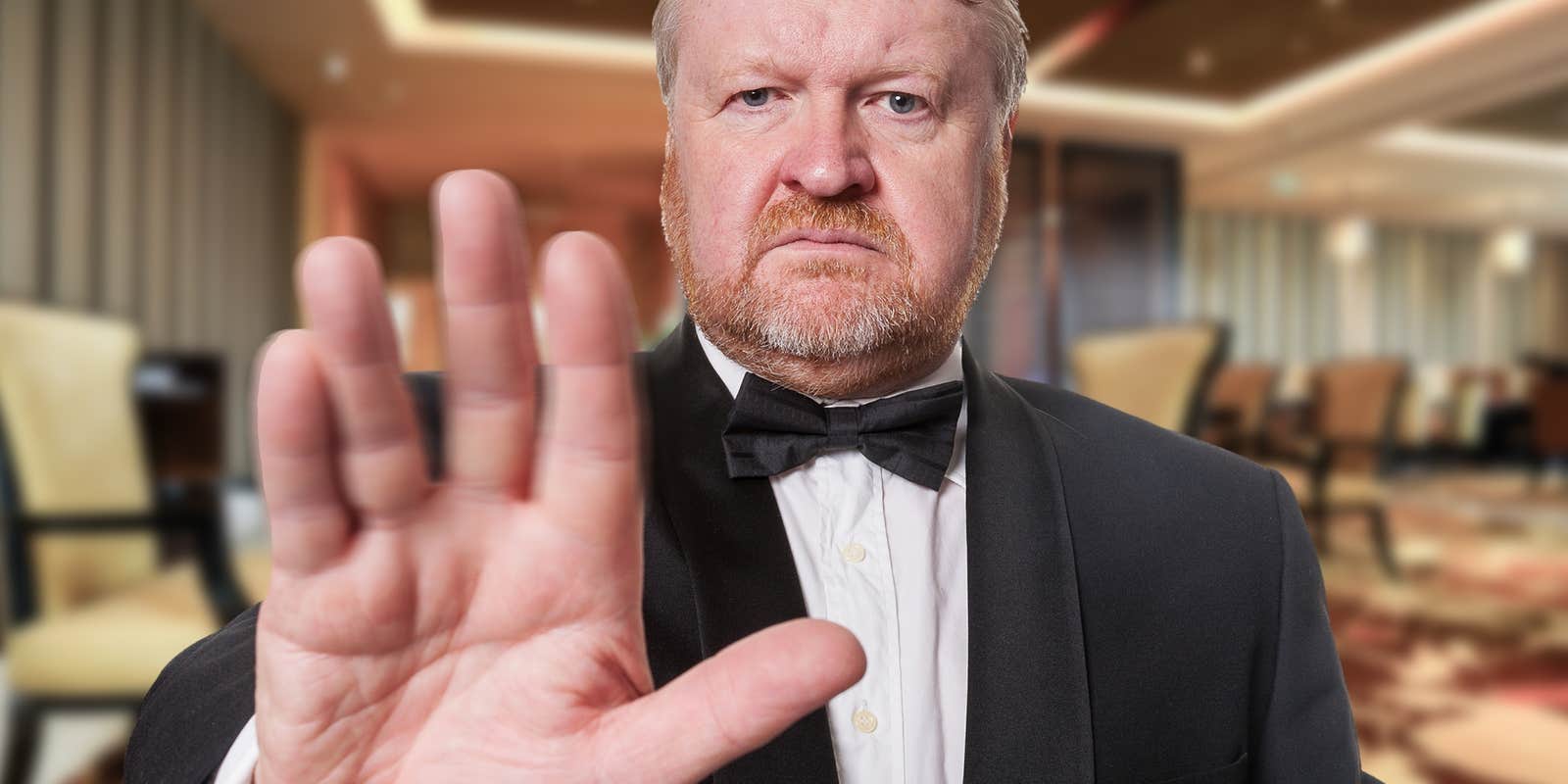Somewhere out there in the U.S., you may have seen a sign hanging in a window that reads, “We reserve the right to refuse service.”
The public statement may seem like a simple one—but it is a highly political act that draws a fine line between constitutional rights and unlawful discrimination, leaving many to wonder if this “right” is actually legal or not.
The simple answer is yes, the ‘right to refuse service’ is legal—but it is accompanied by some pretty big exceptions. It’s worth picking this one apart, no matter which side of the service counter you stand.
The legal line on discrimination
In 1964, Congress passed Public Law 88-352, which included the Equal Employment Opportunity Commission as well as the Civil Rights Act of 1964, which focused on discrimination in public service or hiring. The Civil Rights Act of 1964 prohibits public accommodations from refusing service to customers because of skin color, race, religion, sex, nationality, or any physical conditions a customer can’t prevent.
The right to refuse service, then, means that public accommodations, such as restaurants, theaters, banks, gyms, and stores, can lawfully deny service to a customer if they feel that their business might suffer from engaging in such a transaction—as long as they don’t base that decision on the categories above.
How can a business legally refuse service?
A business or a business owner can refuse service if:
- The customer is too rowdy and causing a scene.
- The customer threatens an employee or the business owner, making that party feel like they are in danger.
- The customer does not meet the company’s clothing or health requirement. (i.e. “No Shirt, No Shoes, No Service”)
- The customer breaks the lawful rules of the establishment; for example, if a tenant breaches the “no-pet policy” for the housing they are trying to acquire.
- The customer would overfill the establishment’s capacity.
- The customer requests service when the establishment is not open.
Can a restaurant or bar refuse service to someone because they are offended by the customer’s cargo shorts? Sure. In fact, there are restaurants who won’t serve you if you aren’t dressed your best.
However, businesses do not have the right to deny service to a customer because she is a woman or worships a different god—that’s called unlawful discrimination.
What exactly is the difference between unlawful discrimination and lawful discrimination?
Lawful discrimination is when someone is treated differently due to characteristics that do not pertain to civil rights—i.e. being denied a loan from a bank due to poor credit. That’s considered your own fault.
Both state and federal laws prohibit discrimination based on age, disability, sex, race, religion, and nationality in any capacity. When discrimination involves the denial of a person due to birth or physical appearance, such as refusing to serve a customer a cup of coffee because they are African-American, the business or company may be on the path toward a major lawsuit.
The fine line between lawful and unlawful discrimination appears when, for example, a business’ refusal targets a customer’s sexual orientation or identification within the LGBTQ community. However, a total of 29 states allow businesses to turn away a customer who is trans-gendered or homosexual under certain circumstances, while 19 states have laws with added protections against discrimination due to sexual orientation.
Are religious beliefs an exception?
Everyone knows that the First Amendment gives Americans the right to speak freely and also exercise their freedom of religion, press, assembly, and petition. Free speech is a pillar of American values—but it is also the reason why some businesses are able to refuse service to certain customers due to the owner’s religious beliefs.
In 2015, Indiana Gov. and Vice President-elect Mike Pence signed one of the harshest bills for pro-discrimination. The Religious Freedom Restoration Act (RFRA) gives any corporation or individual the right to refuse service to customers based on their “sincerely held religious beliefs.” For example, an evangelical Christian business owner can deny a married gay couple because they don’t think it’s right to marry someone of the same sex.
In April, Mississippi Gov. Phil Bryant signed a similar bill supporting the same declaration as the RFRA. Mississippi’s law also declares that gender identification is “determined by anatomy and genetics at the time of birth,” letting businesses make their own decision on who is allowed in their restrooms, dressing rooms, and locker rooms.
Courts have tested the refusal of service due to discrimination against sexual orientation, like the Ingersoll v. Arlene’s Flowers case where a florist refused to make a bouquet celebrating the requesting customer’s anniversary with his partner. The decision was between the right to be treated equally under the U.S. law and the freedom of religion and speech. A trial court found Arlene’s Flowers violated Washington state’s non-discrimination laws. The business filed an appeal, and the case is now being heard by the Washington Supreme Court.
In short, the right to refuse service is controversial yet protected under the law because the act of refusing someone service—and the consequence of being refused—pit constitutional rights against each other.


